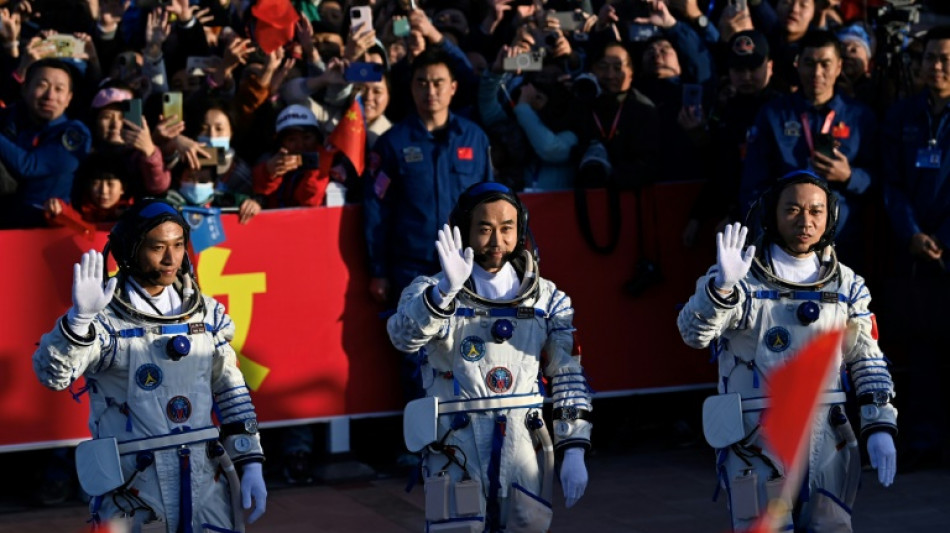

China launches new mission to space station
China sent a fresh crew to its Tiangong space station on Thursday, in the latest mission for a growing space programme that plans to send people to the Moon by 2030.
The Shenzhou-17 blasted off from the Jiuquan launch site in arid northwest China at 11:14 am (0314 GMT), carrying a three-astronaut team with the youngest average age since the space station's construction.
A send-off ceremony on Thursday morning saw the space travellers bid farewell to observers before heading off to prepare for the rocket launch.
"The spaceship, atop a Long March-2F carrier rocket, blasted off from the Jiuquan Satellite Launch Center in northwest China," China's state news agency Xinhua reported.
Captaining the team is Tang Hongbo, who is on his first return mission to the space station.
Accompanying him are Tang Shengjie and Jiang Xinlin, both in their thirties and each making maiden space voyages.
The all-male crew is the youngest ever to man a mission to the space station, with an average age of 38.
They are set to "perform various in-orbit space science and application payload tests and experiments", Lin Xiqiang, deputy director of the China Manned Space Agency, said on Wednesday.
Members of the previous Shenzhou-16 crew -- aboard Tiangong for nearly five months now -- are preparing to receive the trio before returning to Earth next week.
A livestream showed that crew onboard the space station monitoring their ascent in anticipation of their arrival.
After the rocket had been airborne for about 15 minutes, a space programme official proclaimed the launch a "complete success".
Tiangong, the crown jewel of Beijing's space programme, is constantly crewed by rotating teams of three astronauts.
- Space dream -
Plans for China's "space dream" have been put into overdrive under President Xi Jinping.
The world's second-largest economy has pumped billions of dollars into its military-run space programme in an effort to catch up with the United States and Russia.
In June, the return capsule of the Shenzhou-15 spaceship touched down at a landing site in the northern Inner Mongolia region, with state media hailing the mission as a "complete success".
That month also saw the launch of the Shenzhou-16 capsule, which carried the first Chinese civilian -- Beihang University professor Gui Haichao -- into orbit.
That crew will return to Earth on October 31 after completing a handover, officials said Wednesday.
Beijing also aims to send a crewed mission to the Moon by 2030 and plans to build a base on the lunar surface.
Deputy director Lin reiterated that aim Wednesday, saying that the "goal of landing Chinese people on the moon by 2030 will be realised as scheduled".
M.Hernández--ESF




